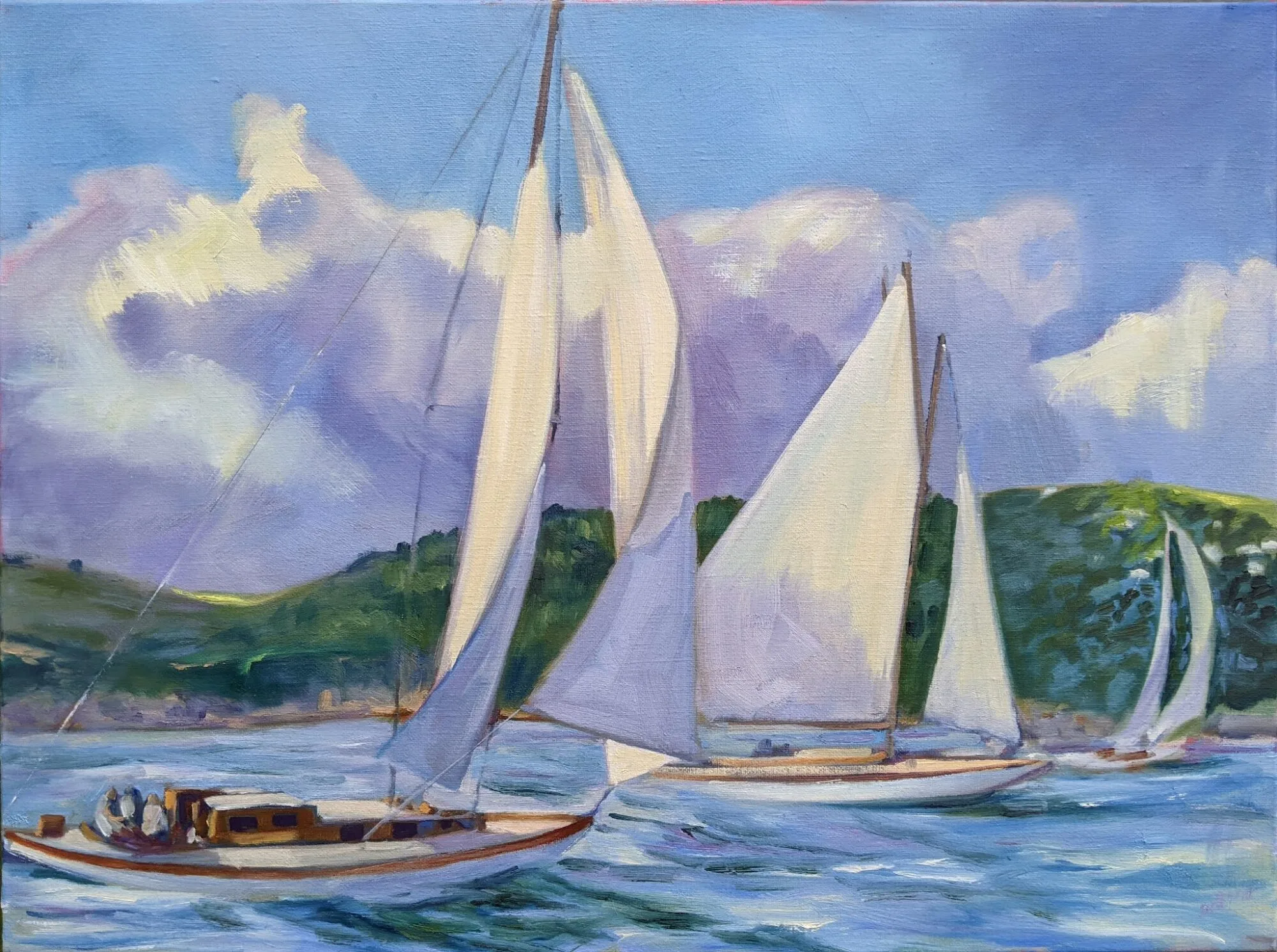“This is bigger than 9/11,” she said sadly, “and did we ever go back after 9/11?”
 |
| Stormy Skies, by Carol L. Douglas. Available. |
Yesterday was a Zoom-intensive day. I started with my class. Then I switched channels to the Maine Arts Commission. That’s a meeting I had to attend, since the commission is working heroically for our economically-battered arts sector.
That meant six hours of online meetings. Later I texted a friend whose job involves doing this all day long. “It left me feeling extremely out-of-sorts,” I told her. “I’m kind of anxious, and I’m not an anxious person.” She said the same thing sometimes happens to her.
A group in which I serve is operating on the principle that we won’t meet in person at all for the foreseeable future. That means we must put all our activities online as much as is possible. But how to do that and in what form remains to be seen.
| After the storm, pastel, by Carol L. Douglas |
I also belong to a group that’s trying to figure out how to start meeting in person if the limit on gatherings is eased in June. There’s varied opinion in our circle about the importance of the restrictions now in place. However, we’re united in wanting to make live meetings happen. That means doing what’s necessary to make everyone comfortable.
Wise leaders are struggling to meet people where they’re at, rather than dictating what their response should be. I have friends who think this is a conspiracy to deprive them of their rights, and friends who are afraid to go to the grocery store. All must be accommodated as we grope our way forward.
How much will we appreciate our liberty when this is all over? The answer depends, in part, on whether you find the current crisis much of an impingement. Not everyone does.
| Parrsboro Dawn, by Carol L. Douglas. Available. |
As someone whose livelihood and religious practice have both been swept off the table, I recognize that things have changed. The question I ask myself is whether I’m intrepid enough to venture out into this new reality, or whether I should retire to the country and raise chickens.
Last night I asked my friend Cheryl whether she thought we’d ever go back to life as we knew it. “This is bigger than 9/11,” she said sadly, “and did we ever go back after 9/11?”
I’ve always wondered why so many people willingly collaborated with the Nazis during WW2. Today people apparently denounce their neighbors for having company or for not wearing masks. I know people have noticed the New York plates in my driveway because they’ve remarked on them. Luckily, these were people who like me.
 |
| Sunrise in Virginia, pastel, by Carol L. Douglas |
I begin to understand the social pressure that drove the collaborators. They were driven by fear, anger, and opportunism as much as ideology. These are all social behaviors, just as much as love and friendship are. We humans are ultimately social animals, even when we’re sheltering apart. We’re so strongly designed that way that it can be our undoing. As I discovered in Argentina, the answer to the question, “If all your friends jumped off a cliff, would you, too?” is, apparently, yes.
Still, don’t for a moment think I’m unduly pessimistic about the future. My faith can be derided as simple, but simple isn’t necessarily a bad thing. “When you pass through the waters, I will be with you; and through the rivers, they shall not overwhelm you; when you walk through fire you shall not be burned, and the flame shall not consume you,” wrote the prophet Isaiah. I know that good will come of these trying times; it always does.
